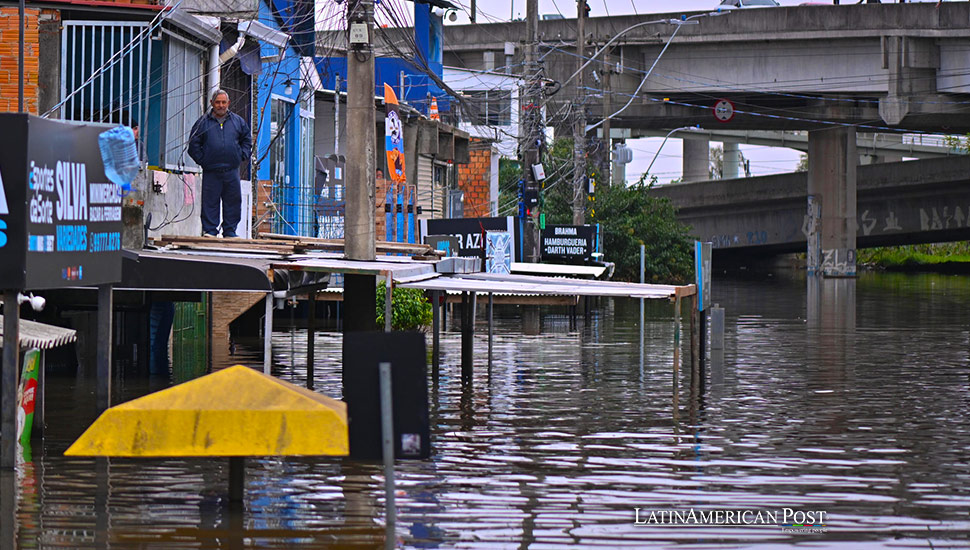Brazil Adjusts Economic Forecasts Amid Inflation and Natural Disasters

Brazil’s Finance Ministry has revised its economic growth projections 2024 while adjusting inflation forecasts to reflect the impact of recent severe floods in Rio Grande do Sul and a depreciating currency.
In a significant economic update, Brazil’s Finance Ministry has increased its growth projections for 2024, signaling robust retail sales and an expansion in credit concessions as key drivers. However, revised inflation estimates for 2024 and 2025 temper the optimism, highlighting ongoing economic challenges exacerbated by recent natural disasters and currency fluctuations.
As Latin America’s largest economy, Brazil plays a crucial role in the regional economy. The Finance Ministry expects the country’s GDP to grow by 2.5% in 2024, a rise from the previous estimate of 2.2%. This adjustment is attributed to strong performance in sectors that directly impact consumer behavior, including retail sales and services to families, and notable increases in net job creation.
Despite these positive indicators, the long-term forecast remains cautious, with the 2025 growth projection steady at 2.8%. This outlook reflects Brazilian policymakers’ balancing act as they navigate internal economic pressures and external market forces.
The Impact of Natural Disasters
The updated forecasts still need to account for the full impact of the devastating floods in Rio Grande do Sul, Brazil’s southernmost state. These floods, which have resulted in significant loss of life and displacement, are a stark reminder of the region’s broader environmental challenges. Latin America has a history of economic volatility in the wake of natural disasters, often revealing underlying vulnerabilities in infrastructure and disaster preparedness.
“The magnitude of the impact depends on the occurrence of new climate events, spillovers of these impacts to nearby states, and the effectiveness of fiscal aid and credit programs in the cities affected by the rains,” stated the Ministry. This comment underscores the uncertain economic ripple effects that such disasters can have, extending beyond immediate physical damage to influence broader financial stability.
Adjusting Inflation Expectations
In response to the floods and other factors, the Ministry has revised its inflation forecast for 2024 up to 3.70% from 3.50% and for 2025 to 3.20% from 3.10%. These adjustments reflect the direct impacts of currency depreciation and increased prices for essential commodities such as rice, meat, and poultry, which are significant components of Brazil’s consumer market.
The recent depreciation of Brazil’s real against the dollar has put additional pressure on inflation, complicating the central bank’s managing monetary policy without stifling economic growth. “Those prices should rise more sharply in the next two months, but a relevant portion of this increase should recede in the following months, with supply normalization,” the Ministry added, indicating a hopeful outlook for price stabilization.
The government’s perspective on interest rates has also shifted, with fewer cuts expected this year and a higher terminal interest rate at the end of the cycle than previously forecast. This decision aligns with comments from Guilherme Mello, the economic policy secretary, who described the current Selic rate as “very restrictive” but necessary to maintain control over inflation without overly hampering economic growth.
Comparing Perspectives
While the government’s projections are more optimistic than those of private sector economists surveyed by Brazil’s central bank, the discrepancies highlight the inherent challenges of economic forecasting in a complex environment like Brazil. Private economists anticipate GDP growth of 2.09% this year and 2% in 2025, with slightly higher inflation rates.
Also read: Floods in Brazil: Impact on Auto Industry and National Recovery
As Brazil adjusts its economic strategies in response to domestic and international pressures, the path forward involves carefully balancing growth-oriented policies with inflation-control measures. The ongoing adjustments to economic forecasts reflect Brazil’s economy’s dynamic nature and underscore the broader challenges emerging economies face in Latin America, where political, environmental, and economic factors intertwine to shape the policy landscape. In this context, Brazil’s ability to navigate these complexities will be crucial in determining its economic trajectory over the coming years.




